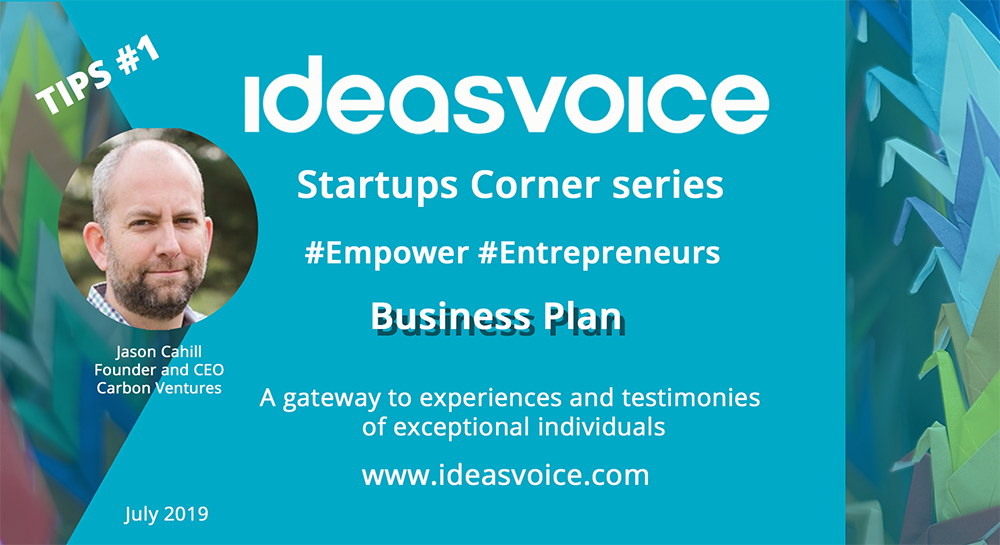Tips for your business plan by Jason Cahill, Carbon Ventures
August 5, 2019
We discuss business plans when reaching VCs and how they impact a company with Jason Cahill, founder and CEO of Carbon Ventures
We had the opportunity to speak with Jason Cahill, founder and CEO of Carbon Ventures, about important topics at hand for entrepreneurs.
Because every company is different, the approach to creating a business plan will vary between different companies. However, this advice can be utilized across all of these unique types.
Demonstrate you know your business
The final product, being the actual business plan, is important to have by the end. But founders should focus on the opportunity at hand when developing the plan.
It gives the time to think about important things like the target market.
The developing of a business plan is actually an extremely helpful learning opportunity. It will be apparent in the quality of the finalized plan if this was taken advantage of.
Rushing to complete it just for the sake of either having a business plan or getting it out of the way be will be equally apparent.
Show investors that you have taken the time to learn everything there is to learn and that you’re serious about being knowledgeable about the business.
This will not only help investors take the company more seriously but will also help avoid any missed opportunities.
Show you are solving a large and meaningful problem and have a big market
Additionally, the business plan should show that the company is solving a large, meaningful problem.
At the end of the day, the business needs to be financially viable so both understanding and explaining how the business can target a significant audience or market should be one of the priorities.
The time each company should take to achieve this will vary. As Cahill explains, people shouldn’t be sitting down and planning how much time they should take or set aside to develop a business plan.
Simply ensure that the plan both conveys the important information and that it is concise. Lengthy business plans are unappealing.
Define clear objectives and a realistic roadmap
An effective business plan will always tell investors how the company will reach certain objectives.
A founder can suggest that the company will grow by some amount by a given time. But those words are empty unless they can be backed by a comprehensive plan.
Entrepreneurs should avoid unrealistic promises. It will clearly lay out a strategy to meet ambitious but reasonable targets.
That said, a business plan doesn’t necessarily require fine details such as specific employments or expenditures down to the cent. Having a strong foundation will be sufficient for being clear.
Ensure that the company and the investor have aligned vision
Furthermore, the business plan will bring to light any potential disparities between founders and investors.
While every founder should be open to the idea of change and compromise, don’t challenge the integrity of the company. Core values and the company mission can’t be bartered with for the sake of raising capital.
If founders and investors can’t resolve disagreements, perhaps that specific investor is not compatible with the company or founder and that is ok.
Regardless, one will effectively assess the compatibility of the company and an investor when reviewing the business plan. You may debate details within the plan but have to agree on the fundamental approach to growing the business.
That is why creating an accurate, straightforward business plan is imperative.
Discover other entrepreneurs interviews and more tips on our Startups Corner
Follow IdeasVoice Youtube Channel
Join us and find your cofounders


